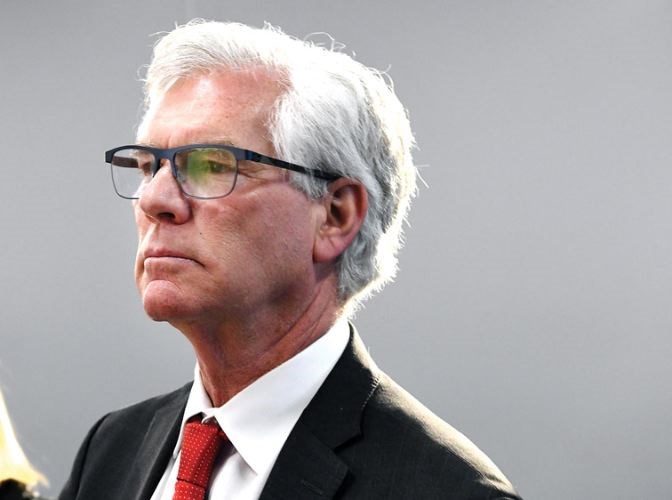When federal Minister of Natural Resources James Carr attended the B.C. Natural Resources Forum last week, he gave several hints of the international trade directions the federal government took in the past 48 hours.
In the most meaningful national business deal done since the European Union pact of 2014, Canada announced Tuesday that it had signed on to the Trans-Pacific Partnership (TPP), joining North American trade ally Mexico to also sign that dotted line.
Altogether, the TPP list of partners includes Australia, Brunei, Canada, Chile, Japan, Malaysia, Mexico, New Zealand, Peru, Singapore, and Vietnam.
Commentators had characterized a recent spate of Asian trade visits as a failure by Canadian officials to come home with tangible contracts or memoranda of understanding, especially with power-economy China.
Carr told The Citizen in an exclusive interview during the Prince George forum that appearances were different than the reality. Only a few days later came the TPP announcement.
"There was never an intention to sign a deal (while in Asia)," Carr said. "The intention is to get closer in our conversations with the Chinese to reduce irritants to trade. I had a conversation as recently as last night with one of my counterparts in China, the vice-minister of the Ministry of Science & Technology, talking about lumber, talking about Canadians helping the Chinese develop solar technology to reduce reliance on coal. All of that goes on all of the time. And I'm sure at the most senior levels of both governments there will be continued conversations about closer trade links."
He stressed that China, the TPP countries, and the United States were only some of the options on the Canadian table. Trade discussions were also active with Latin America, Europe and breakaway United Kingdom market.
"It's a big world. Canada is important in every part of it. So it is our job to make ourselves take full advantage not only of our natural resources but also of our ingenuity, our creativity, our innovative thinking, so it's not only our resources that move but it's also technology and smart thinking. Canada is good at all of that."
Speculation has already emerged that Canada and Mexico each signing onto the TPP is a tactic in the slow-moving negotiations with the United States over a new North American Free Trade Agreement.
Also vivid in local view is the fresh U.S.-Canada trade dispute over softwood lumber. Carr said the entire Canadian negotiation team was actively engaged in talks with their American counterparts and believed the process was aiming at a July completion based on signals from American President Donald Trump.
"We're a trading nation and we believe in freer trade," he said. "We are negotiating NAFTA in good faith. We are negotiating with the most protectionist American administration in a very long time, we have the best negotiators in the world, my colleague Chrystia Freeland is also a terrific minister, and at the same time we're talking to major economies in Asia to expand our export markets. And this isn't a particularly partisan issue; you will notice that on NAFTA the opposition has been cooperative, the opposition understands that this is clearly in Canada's interest, and the job is to convince the Americans that it is in their interests."
Were our negotiators taking a "Canada first" kind of approach? No, he said, that is not how two partners do business. He said the Canada-U.S. border was where $2-billion in trade occurred each day last year, so our shared line is a place of deep economic friendship at the private sector level, and that permeates the public sector negotiations no matter what gets tweeted by politicians or opined by pundits.
"We are always looking at where our interests combine, and that's what makes good trade deals," Carr said.
Still, he said, it does no one in Canada an economic service to give in to exclusive arrangements.
"We are looking to expand our export markets," he said, matter-of-factly. "Ninety-nine per cent of our oil and gas that is exported goes to one country: the United States. Sixty-four per cent of the softwood out of British Columbia goes to the United States. Ninety-nine per cent of softwood out of Quebec goes to the United States. So we think it's a good idea to give our producers other markets, and to help where the Government of Canada can help."
The TPP announcement was immediately applauded by one of Canada's leading forest industry agencies.
"This agreement will benefit the Canadian forest products industry by eliminating tariffs, as well as providing clear provisions to help settle disputes and avoid unfair blocking of imports because of concerns about issues such as insects or other contaminants," said Derek Nighbor, CEO of the Forest Products Association of Canada (FPAC). "For example, forest products from Canada now face:
31% tariff in Vietnam for certain kinds of wood and up to 27% for paper.
40% tariff in Malaysia for plywood and up to 25% for paper.
10% tariff in Japan for wood products.
"The sector is working hard to diversify its markets, especially beyond the United States who have enacted unfounded protectionist measures against our industry," Nighbor continued. "We encourage the government to continue with its efforts to extend freer trade."
According to FPAC data for the period between 2012-16, Canadian forest products exported to TPP member nations grew 14 per cent to over $1.9 billion, with exports to Vietnam, New Zealand and Mexico growing the most by 152 per cent, 100 per cent and 39 per cent, respectively.
Add in the current Chinese intake of forest products, plus what China indicates they might want in the future, and Asia is indeed a hotspot for Canada, at least on the forest products file that sustains B.C.'s economy.



